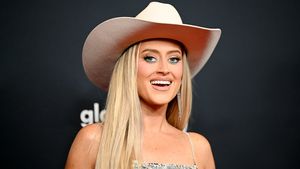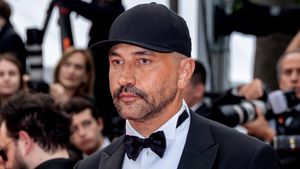All Rights reserved
By continuing to use our site, you agree to our Private Policy and Terms of Use.
Photo courtesy of Dave McMahon and The Vixen. This piece was condensed and edited by Taylor Henderson.
For the month of June, PRIDE is collaborating with prominent voices in the LGBTQ community to work as guest editors for the site—and this week's guest editor is RuPaul's Drag Race alum The Vixen!
After a controversial run on Season 10, The Vixen is one of the most talked about queens of the entire series. While she might have ruffled a few feathers, she has absolutely no regrets.
Every day this week, The Vixen will discuss topics like her run on Drag Race, Chicago, race, Black Girl Magic, and more. Today, she wants to talk Pride and what it means to her!
—
When I think of gay pride, it almost seems like a given. I guess I focused on being a drag queen for so long that sometimes I forget that I'm gay. It's like taken for granted for me.
I forget that even being gay at one point was something that needed to be validated. My sexuality is almost secondary to my art form now because I don't think about it as much. I don't exercise it as much as I do my identity as a drag queen or as a queer performer and artist. Which I guess is a good stride in progress, that I don't have to think about being gay every day. I wake up and I have to think about hair and wigs and makeup.
Trending Stories
I guess that's the goal: to feel so comfortable that you don't have to think about it.
Being a drag queen, the struggle with doing drag takes over the burden of coming out as gay. Drag queens say it all the time: you come out two times. You have to come out as gay to your parents and then you have to come out as a queen. Neither one is easy and both take time to get used to.
For most of my family, it was not surprising at all. I've always been a performer my whole life. Even seeing my Sunday school teacher at my mom's wedding, she mentioned how I would perform in my grandmother's living room with my scarves around my head and my waist, doing Tina Turner impersonations.
It's always been there. Drag has just been waiting for me to get old enough to do.
The only person in my family who had to come to terms with it was my mom, and not because she didn't accept it. Because she was worried for my safety.
Parents of black boys worry enough just about you being a black boy. When police shootings came more to the forefront (especially in Chicago), I would post all the time that I feel safer going to the train in drag than I do going as a black male.
Even around other black males because...I don't know what that energy is. If I'm on the train and I see another black boy, we're both conditioned to think that the other is somehow aggressive. And so we're both in some way posturing. It's that masculine thing where you're trying to ward someone off. But if I would be on the train in drag and a black guy walked by, he would probably look at me, look away and go on about his business. It's a strange thing that a drag queen is safer in this world than a black man.
I think that's the big thing with parents. What is your quality of life going to be? Are you going to be in danger because of this? Are you going to be out in the street?
It was the point when I started, not only getting shows, but I won an award with the Human Rights Campaign for activism, and my mom came and there were banners with my name on it and people wanting to meet me and Michelle Williams from Destiny's Child was there.
That was a turning point for her, when she realized that being gay wasn't going to be a detriment to me in life. That I could actually work it to my advantage in a way. That really turned her around.
Then the next time I was putting on my makeup, she was like, "Well, how come you never do my eyes?" And I was like, "Oh God, who are you?"
Keep up with the rest of The Vixen's guest editor content all week on PRIDE, here!





























































































































